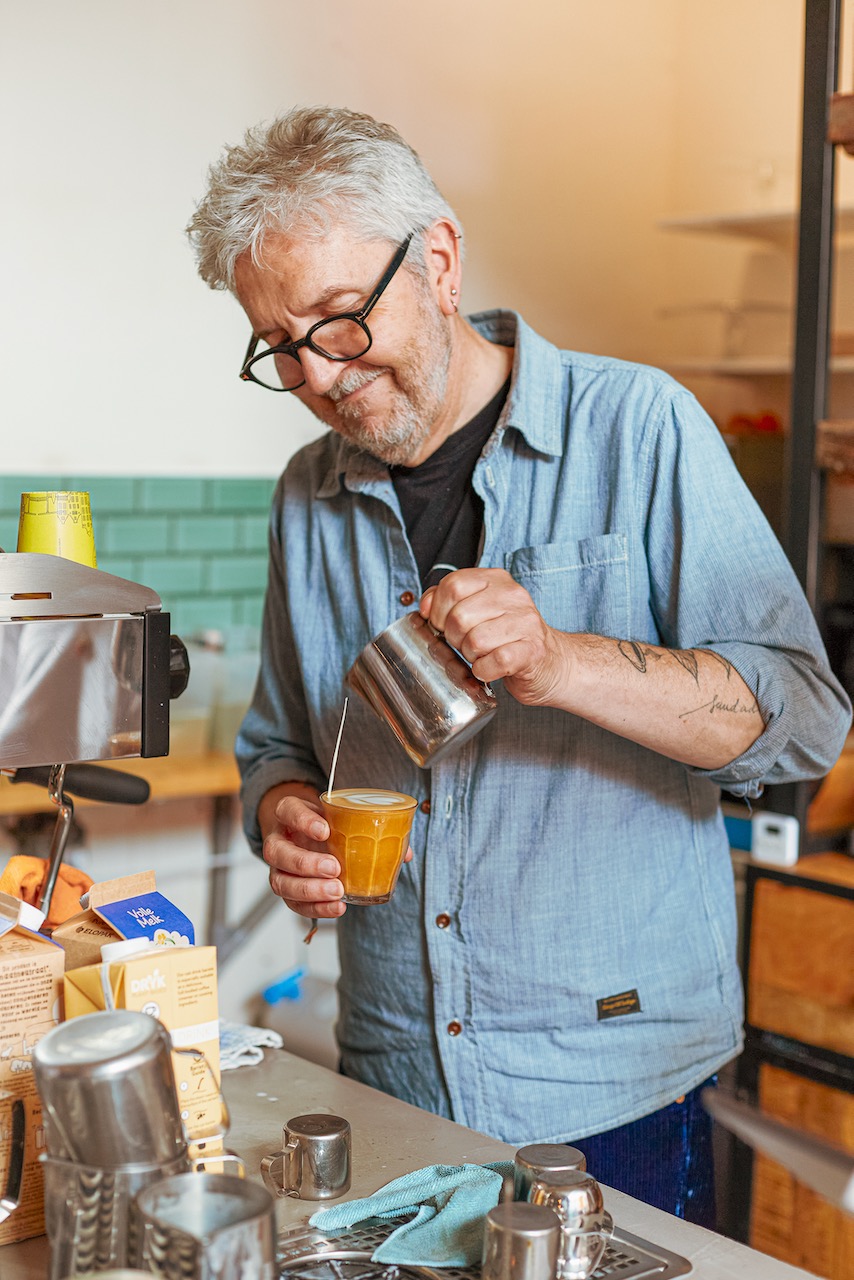
More than Business: Guided by Heart and Coffee
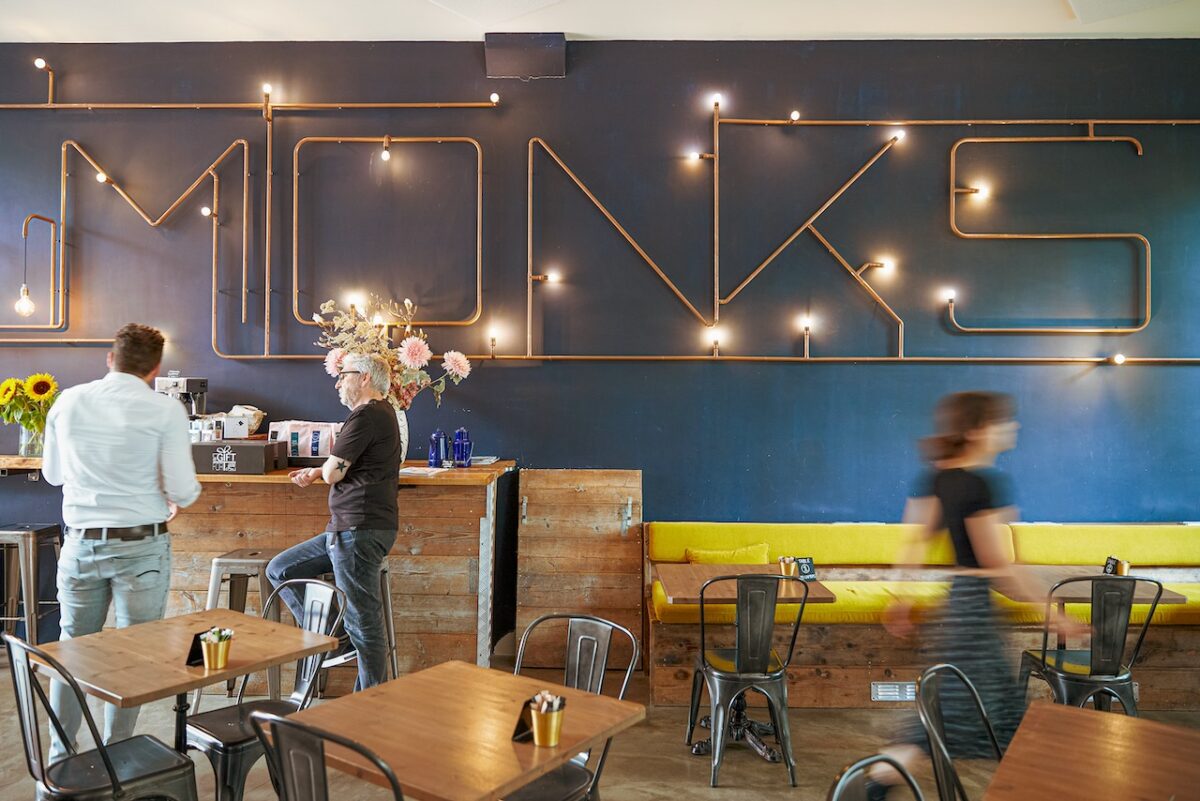
Monks Coffee Roasters is a roastery that also operates a cafe in Amsterdam, the Netherlands. While the coffee shop strives to deliver high-quality products and service, it’s also committed to sustainability-oriented practices, including by shunning plastics and delivering products by electric bicycle.
Monks Coffee was founded in August 2016 by Irishman Patrick Abbott after he lived in Australia for 25 years. Though he had to spend more than one and a half years to find a space to start his project, all the while, his belief in its eventual success never wavered. What was behind his confidence, and what is it that’s driving Patrick, now over 60 years old, to stay active at the forefront of the industry? To find out, we spoke to Patrick to get a glimpse into his life path.
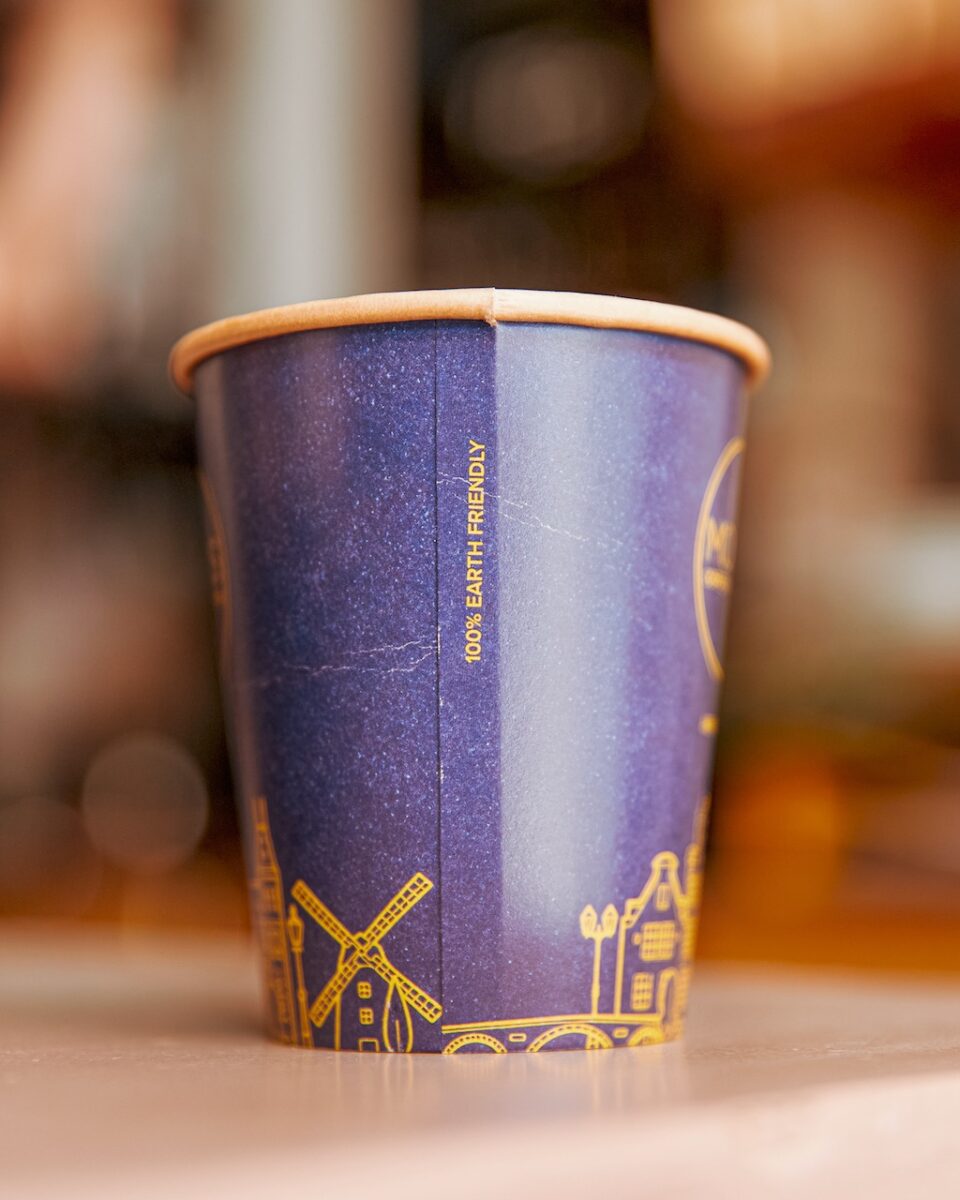
Heading in the right direction
The Netherlands is set to ban single-use plastics at cafes, restaurants, and offices starting 2024. In this eco-friendly country, Amsterdam is leading the way. With a goal to realize a fully circular economy by 2050, the capital is setting an example for cities the world over. In Patrick’s eyes, however, change is not coming fast enough.
And that shouldn’t come as a surprise, because Monks Coffee has managed to eliminate plastics since its foundation. Every material you find at Monks Coffee is compostable or recyclable, from paper straws to transparent cups made from sugar cane. Monks Coffee also gives away used coffee grounds to customers as garden fertilizer and facial scrubs in an effort to minimize waste.
All these practices don’t cost much, Patrick says. “Although we do pay a bit more than we would normally for plastic alternatives, there is only little difference. The value it brings to our brand is much greater than its cost.
That said, it does take a lot of work. So you have to really want to do this. After all, it’s very easy to throw everything in the rubbish and just forget about it.”
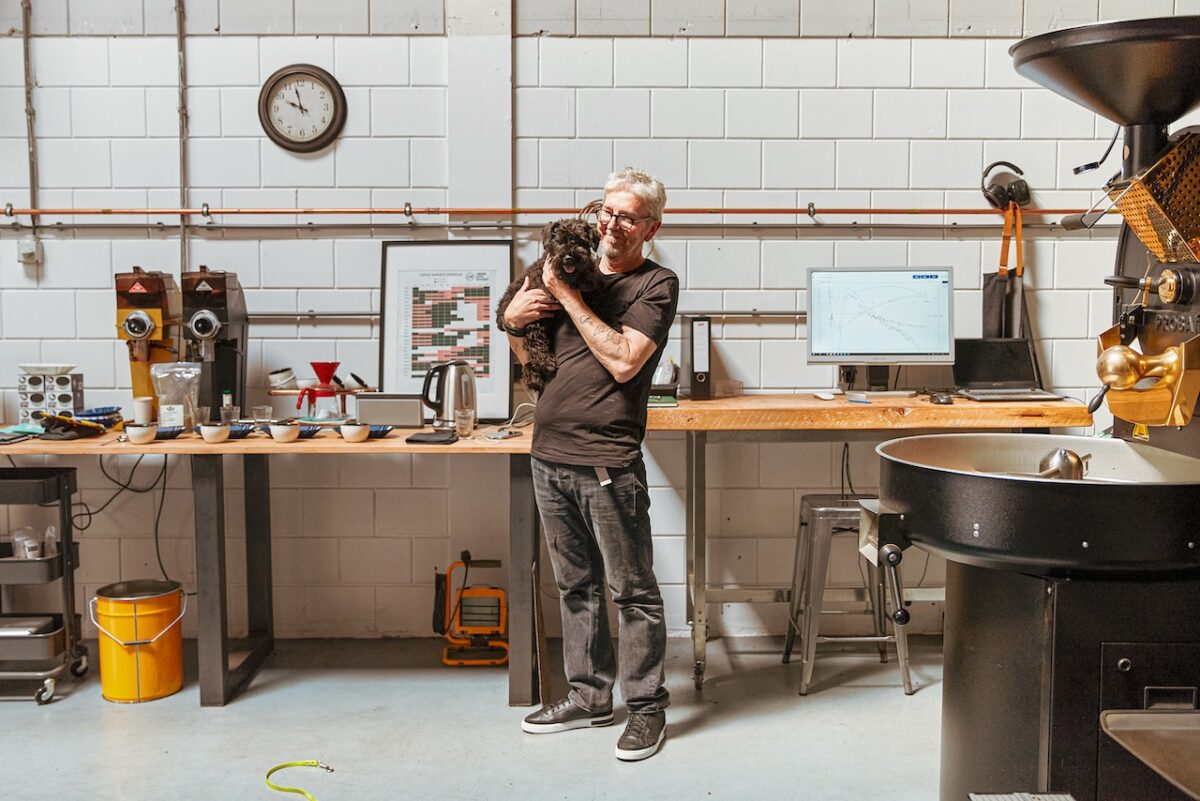
For Patrick, ensuring sustainability isn’t just a business imperative but also a lifestyle at home. “I can’t be a hypocrite,” he says. For instance, he separates household waste where possible and recycles whatever is reusable.
“I’m a minimalist by nature. I have everything I need. A supportive partner and a little dog called Oscar, that’s it. Also, there is always a lot to consider between the shop and the roastery. It’s very busy. So we need to keep things simple at home to be able to relax.
We don’t impose our ideology on customers. We have to subtly and quietly convince them about what we do in the shop. It’s nice when they become aware of it, especially when they bring their own takeout cups. They do it for a reason. Not just to get the 10% discount, but to do the right thing.”
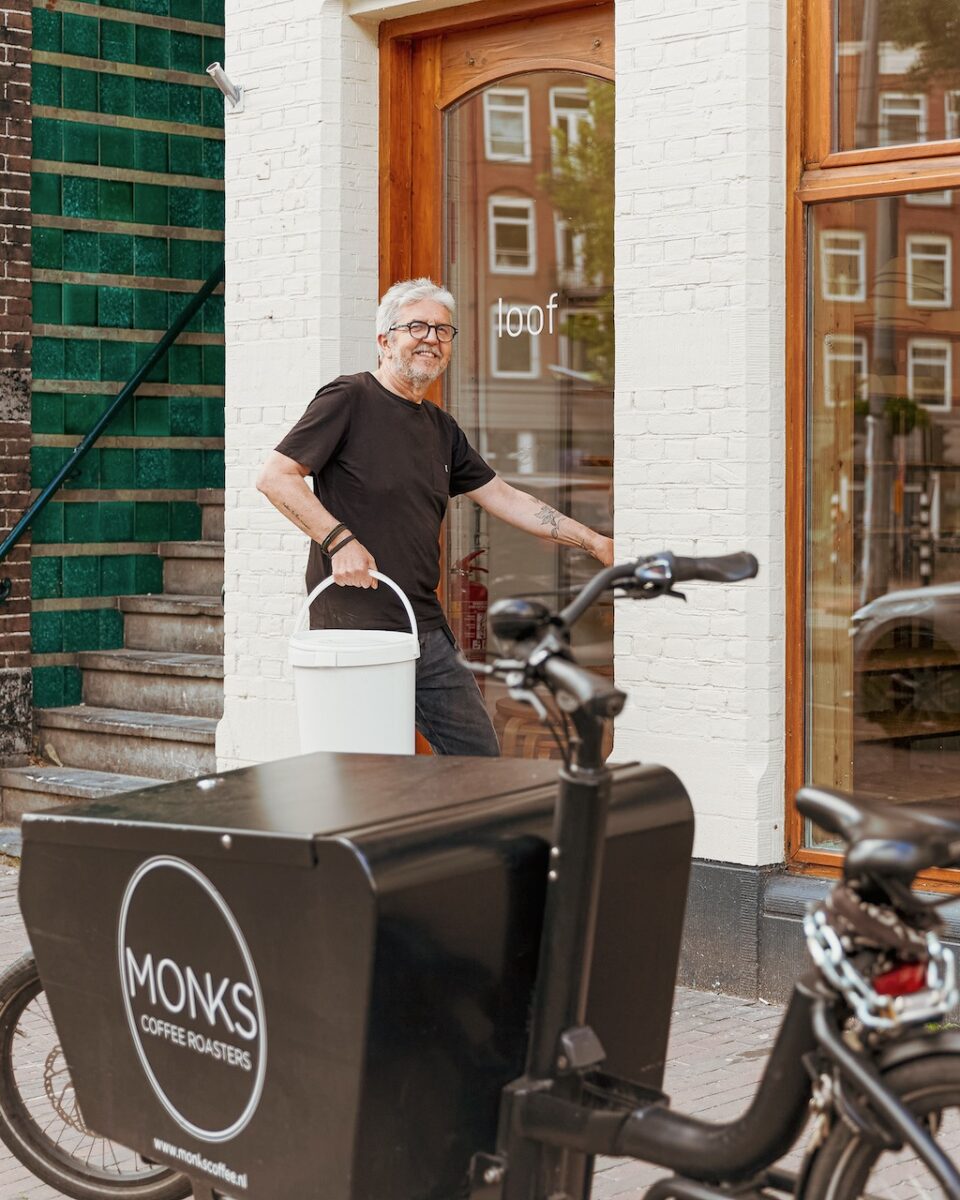
This mindset also permeates the way Patrick builds relationships with customers. He uses an electric bicycle to make weekly deliveries around the city to wholesale clients and customers. He settled on the greener method because a gasoline car would have a high environmental footprint. Plus, it would cost a lot more. Petrol and insurance are expensive, not to mention the parking fees of eight euros an hour.
“Amsterdam is a compact city. You can cycle from one side of the city to the other in half an hour. We deliver to retail buyers, too, if they are in the Amsterdam area.”
To some, it may seem inefficient to do delivery themselves. But for Patrick, doing so has a business rationale.
“Delivery is about customer relations. It gives us opportunities to build good relationships, see how much coffee our wholesale clients are using, whether their standards are correct, and whether their staff understand our products. And we can help them find solutions to their issues or make suggestions for our coffees as well.
Also, when we are out on the road, we may find potential new clients. So we carry samples with us all the time.”

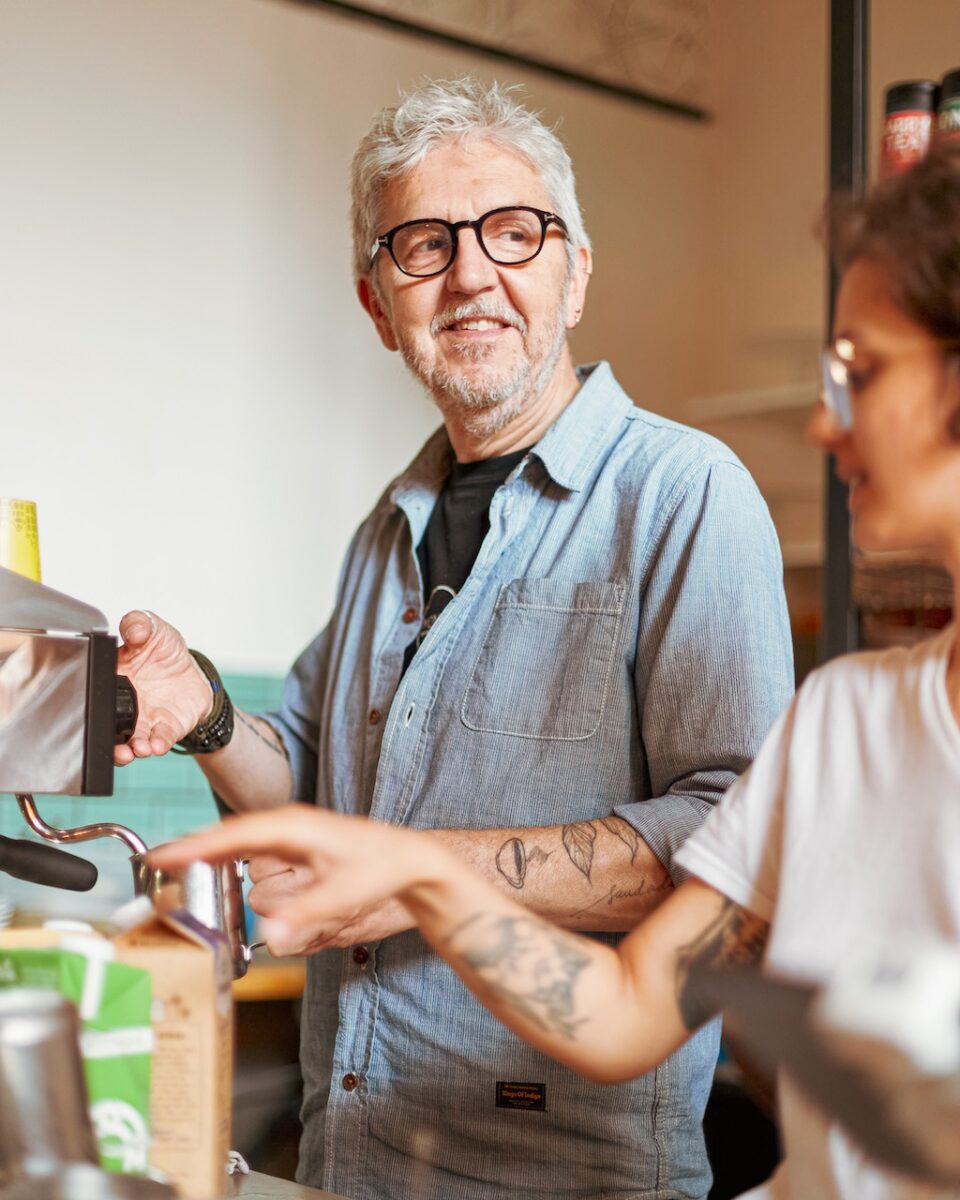
Driven by challenge
Patrick, who turned 61 in June 2022, is originally from Ireland. After moving to Australia in his 20’s, he became involved in communications and marketing. While employed, he also worked as a contractor to help businesses and shop owners launch their restaurants and cafes. Over time, he shifted his focus toward this field.
“When I was asked for help in setting up a cafe, for instance, we would find the premises, do branding and recruiting, and train staff. Everything from zero to an operational business. The budgets were always very big. And when you are playing with other people’s money, your concept has to be new and successful. While feeling the weight of responsibility, I was always excited by the challenge.”
After spending more than 20 years in Australia, Patrick decided to leave the country. A conversation with his partner, a Dutch girl he met there, was the trigger. They decided to go back to Europe. She had been away from home for over 10 years and Patrick much longer.
She wasn’t the only one who missed Europe – so did Patrick. Besides, the European coffee market seemed intriguing. At this point, he was on the far side of 50. Passion for a new challenge, in a country still foreign to him, started brewing.
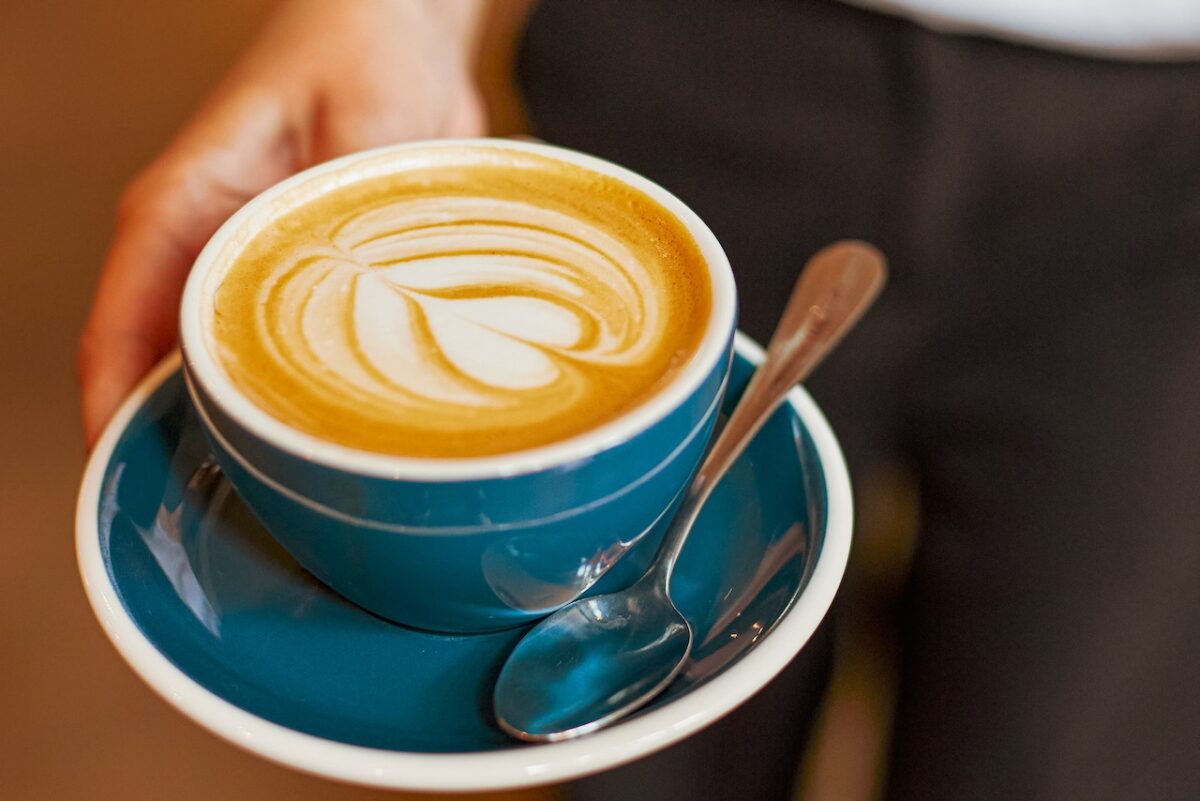
For someone who had been involved in coffee for many years in Australia, whose cities lead the global coffee scene, the choice wasn’t a hard one to make. After surveying markets across Europe, he set his eyes on Amsterdam, home to the just-burgeoning specialty coffee market.
However, the first obstacle came in an unexpected form. Amsterdam, it turned out, had a detailed zoning system where each block is assigned a specific set of varying businesses. On one hand, the regulation helps prevent a concentration of similar establishments in one area and hence competition among them. On the other hand, it poses a high barrier to entry, and in a way, stifles a cycle of the new replacing the old. Because of these restrictions – where property A can only be leased for a cafe and property B for a hair salon – Patrick, like many others before him, struggled to find a space for his business.
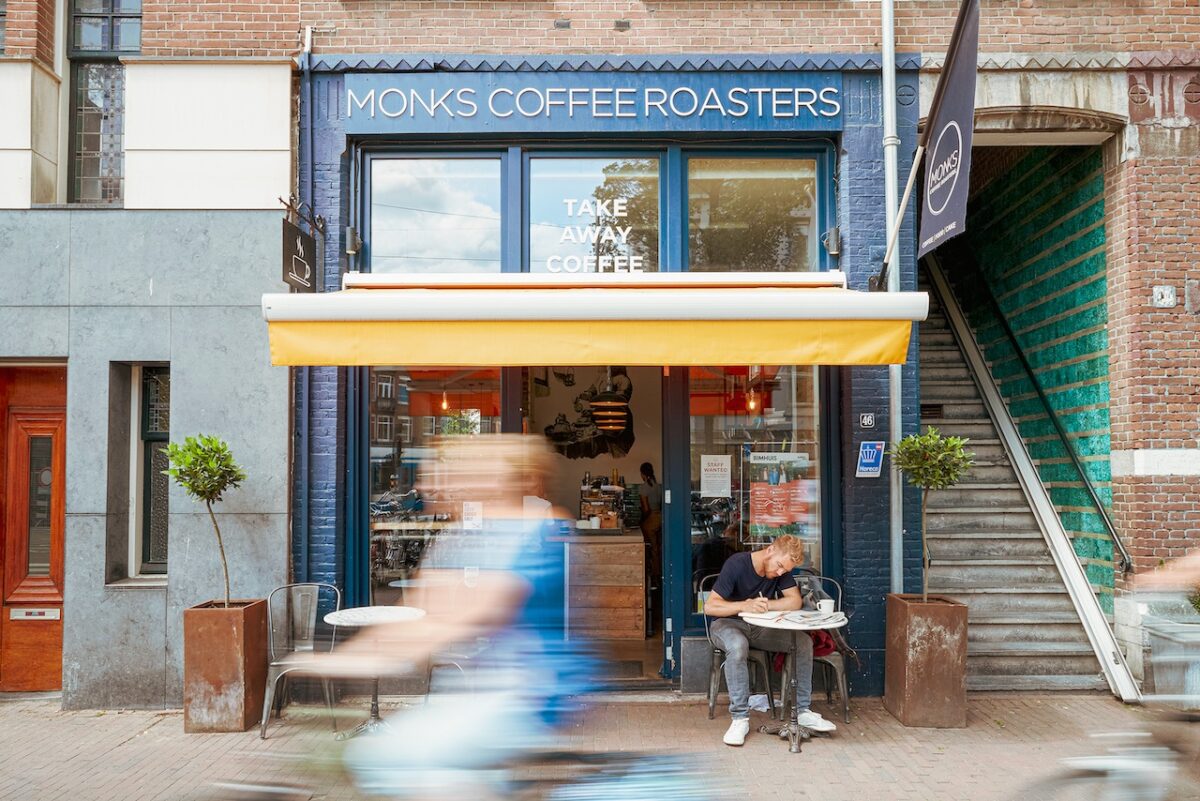
Days passed as he walked throughout Amsterdam, street by street, occasionally approaching not-so-bustling businesses and offering to take them over. One day, more than 18 months into the search, he caught workmen coming out of the basement of a building as he cycled past.
A quick conversation later, he found out who owned the building, and that the property was just about to be put on the market. It was a prime location with high visibility and frequent foot traffic – A chance he had long coveted was now before him. His heart beating with hope and excitement, Patrick met and asked the owner to rent him the space.
“I was a foreigner in this city. So I put together a detailed business plan and gave her a perfect presentation. Later on, she told me she had 15 people asking for this space. If I had passed by just one minute later, there would be no Monks. I was very lucky.”

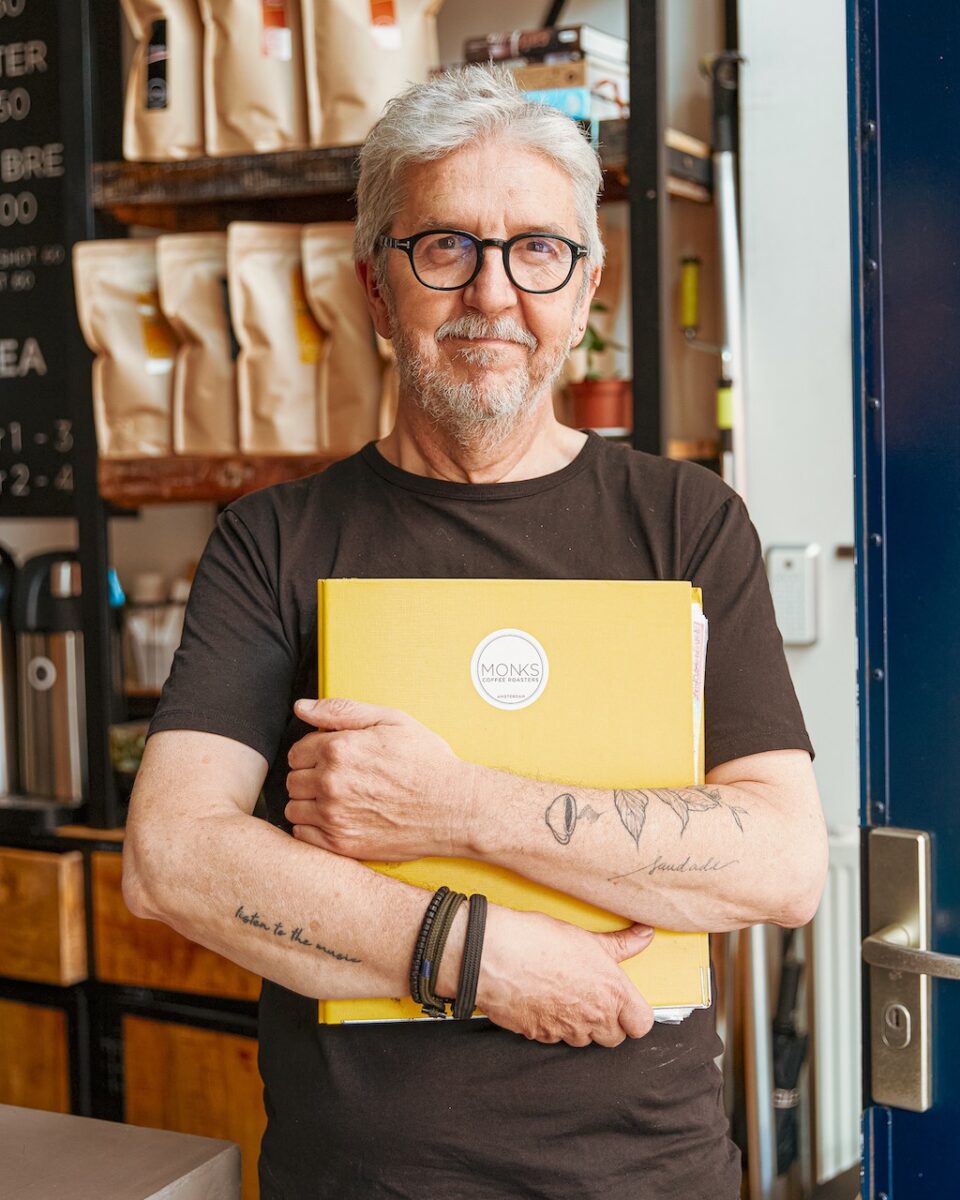
Coffee is coffee
Even amidst the uncertainties surrounding his property hunting, Patrick was confident that his business would be successful – so confident that a fear of failure never crossed his mind.
“I don’t mean to say I am special or anything. I just knew that if I was determined and driven to make it happen and work hard on it, it could only work.”
At the basis of his confidence was a folder. While in Melbourne, Patrick spent two years going to more than 100 cafes and restaurants listed in a coffee guidebook. The folder contained detailed notes of space design, product lineups, and customer service of the places he visited, accompanied with their photos. For Patrick, who was preparing to set up his own space, it served as a bible with insights into what these shops excelled at and where they could make improvement.
“Melbourne is a very challenging area to run a cafe. I had all the knowledge of how the cafes work in the city. And I brought to Amsterdam the core principles of how people maintained the highest standards of work down there. Melbourne has a population around five times that of Amsterdam. Coffee is a principal product of the city. People in Melbourne spend so much more money on laying out cafes than in Amsterdam. There is very little imitation in Melbourne. Everyone has a unique perspective on how a coffee business should be run and works to the highest level. Because if you don’t, the guy next door or the guy down the street will, and you won’t be successful.”
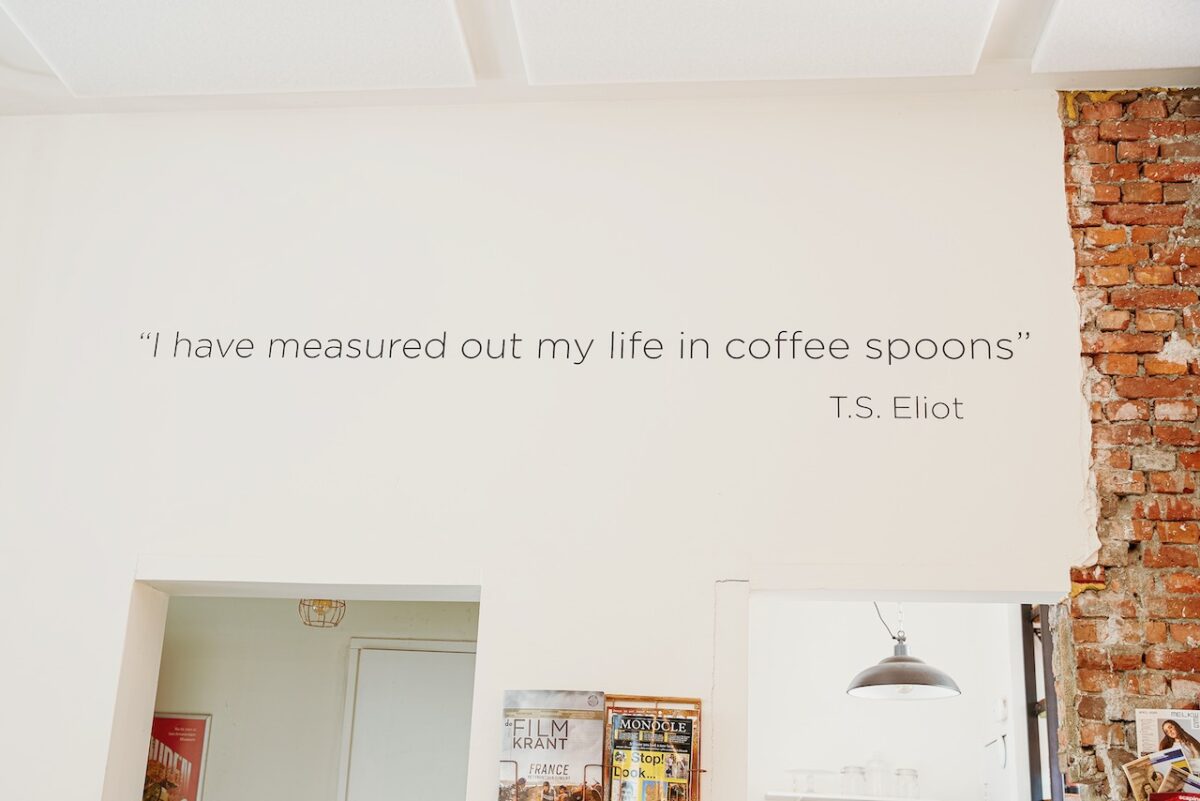
Monks Coffee will soon mark its 6th anniversary. There’s been no major crisis in the years since it opened its doors. But its space itself has a history of boom and bust, with quite a few businesses – a fruit shop, fishmonger, clothing store, ice cream joint – coming and going. Monks Coffee is breaking the record for the longest-running establishment in this space, according to neighbors who have witnessed the ever-changing landscape for the past 30-40 years.
A secret behind Monks Coffee’s success may be found on a wall inside the Monks Coffee cafe. There, customers see a quote from a poem: “I have measured out my life with coffee spoons.” The line has attracted many versions of interpretation. For Patrick, the words seemed to overlap with his life path and philosophy.
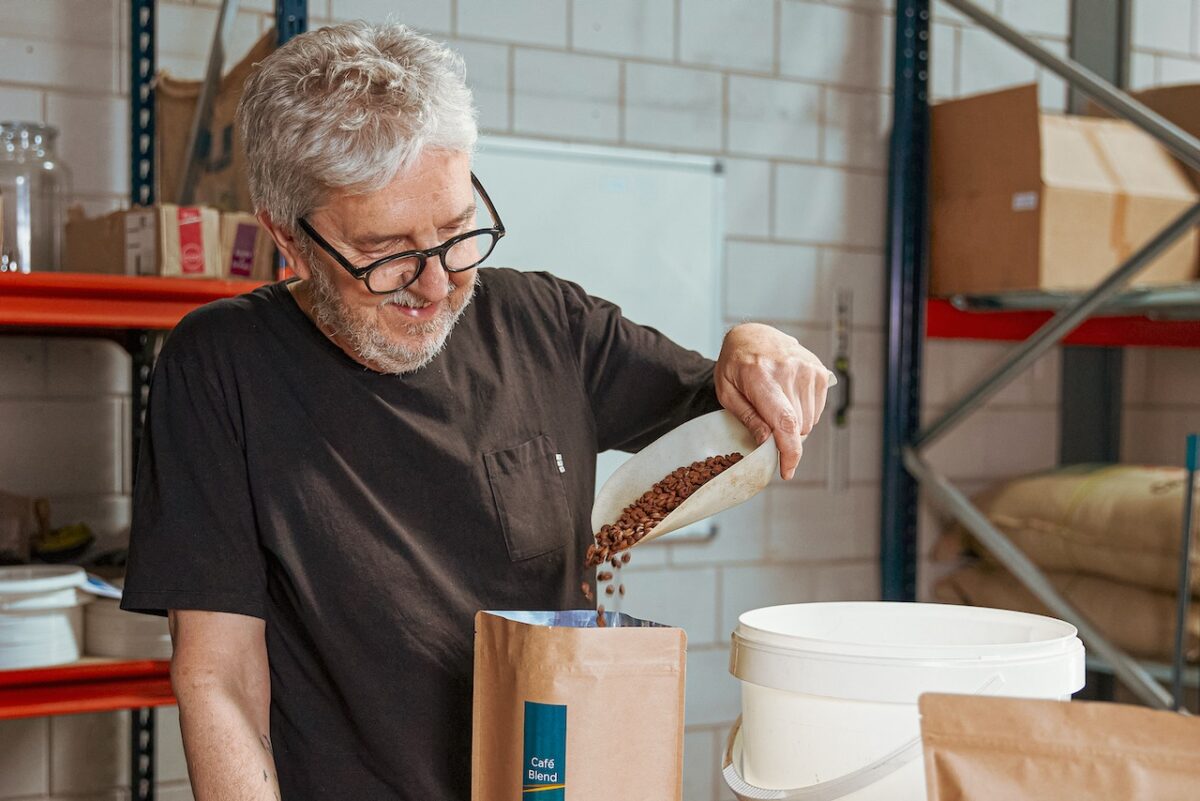
“Second-wave and third-wave coffee started in Melbourne. Having watched the market there, I think everything is coming back full circle now. Even if people try to introduce a new brewing method or recipe, it always ends up as a fad.
If you roast and brew coffee to your best ability based on well-established formulas, it will always turn out nicely. Of course, you have to hold yourself to a high standard and do each cup to the best of your knowledge and skills. But coffee is coffee, after all.”

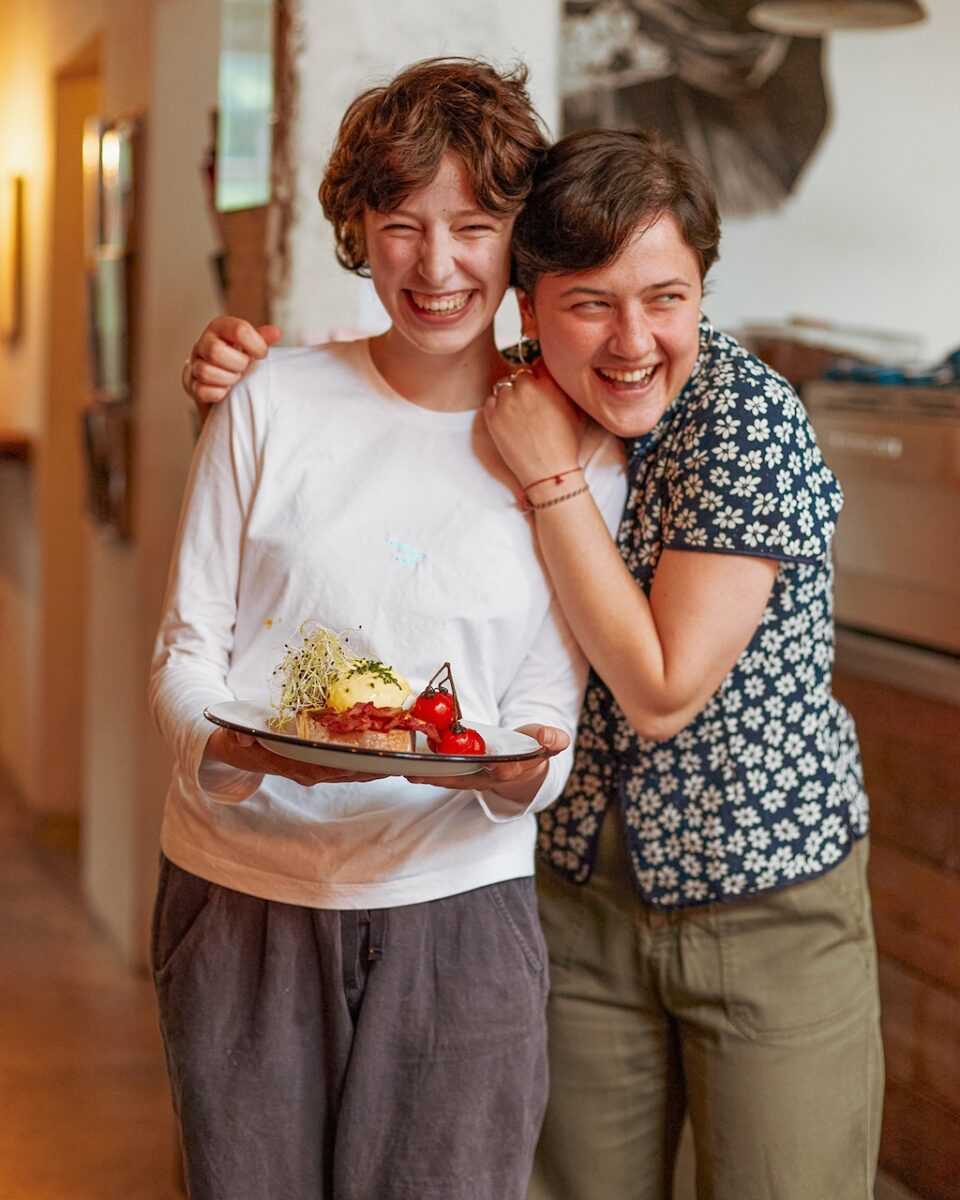
Coffee is a leisure business
One of the mottos at Monks Coffee is to “offer you a positive experience” from its coffees. To create a third place where customers can relax with a book or friends and also to make the business a success, Patrick cites products, service, and the shop’s atmosphere as important factors. The key, he says, is finding the right people to work with.
“I have two simple principles: skill and talent. I can train anyone to perform basic skills in the shop. That’s the easy part. But at the same time, if you don’t have the talent or passion to perform these skills and enjoy doing it, you will certainly fail at the job. When you see people talk about coffee and their past experience, it’s pretty obvious whether they really enjoy it or not. If they do, they will easily fit in with the team. At the end of the day, coffee is a leisure business to bring some joy to people’s lives.”
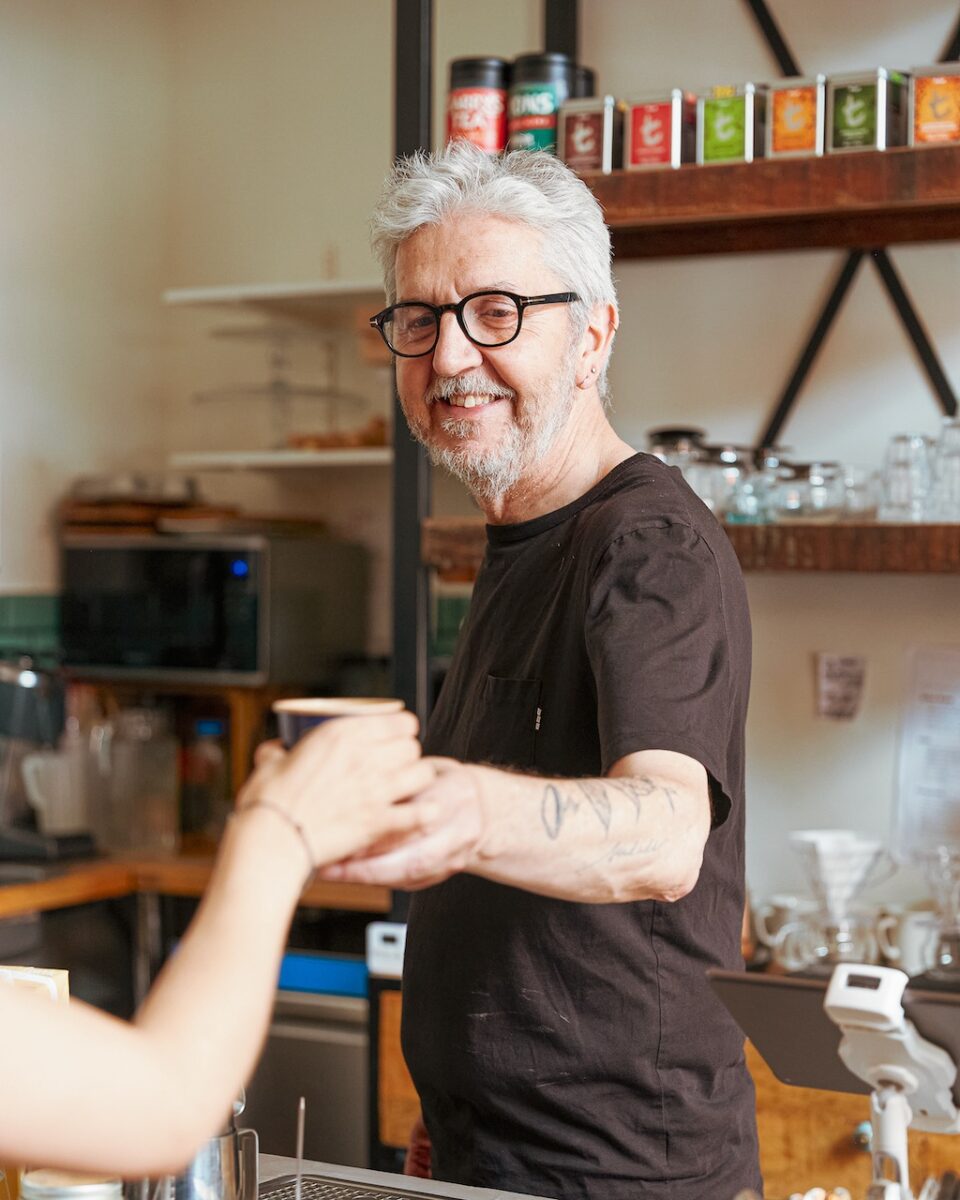
Patrick himself enjoys the ‘leisure’ business to the fullest. For him, becoming friends with customers and hanging out with them after work is not a rare occurrence. There is almost no clear-cut boundary between work and hobby, and professional and personal.
“My job has many different aspects, from roasting to green sourcing to store management. But I like the work in the cafe as much as the roastery. I’m interested in people. I ask customers what they do for a living, what motivates them, how their life is. Just out of natural curiosity. And people warm to me very quickly.
Some people may have felt confused about my direct questions. But they, too, want to have someone to talk to. This was very apparent during the corona times. They sometimes open up to me about issues they may have or problems at work, etc. I’m like a therapist who sells coffee with random advice. I’m naturally inquisitive and interested in people. This aspect of the business gives me a lot of energy.”
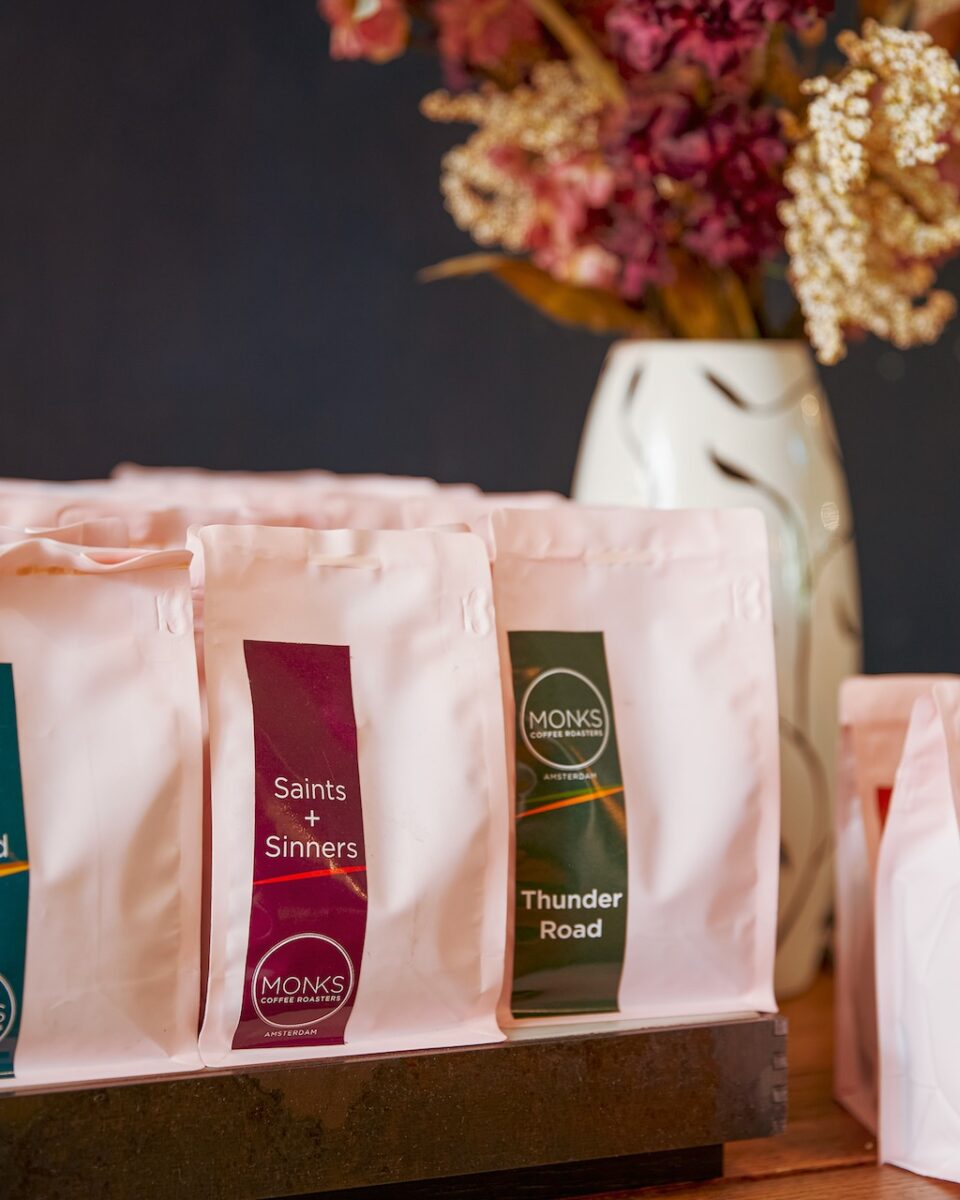
For Patrick, who started a business in a foreign land in his mid-50’s, age must be just a number. Products at Monks Coffee, its service and atmosphere are a natural culmination of the beating souls of the people gathering there.
“I decided to keep working on the frontline of the business for as long as I can. I know I’m still able to do this job very well and continue to be involved in it. I’m busy enough now. But my ambition is to also open an espresso bar and keep it turning along nicely. But I don’t want to lose the time to interact with customers. So I don’t aim to expand it into a chain at scale. As long as I keep getting fulfillment from my job, I’m happy.”
Originally written in Japanese by Tatsuya Nakamichi
Photos by Marina Chef
MY FAVORITE COFFEE
I drink a lot of coffee as part of the job. But I love my Cortados, a 50/50 mix of espresso and oat milk. It’s the coffee of my choice, especially in the morning after a few espresso shots. I first test and dial in the grinders, so I taste a few espressos first. I’m at the shop from 7AM to 6PM most days when I’m not at the roastery. A Cortado gives me an energy boost to get through another day at work.

Buy coffee beans from this roaster
Monks Coffee Roasters
- [Open]
- Mon - Fri : 8:00 - 16:00 Sat, Sun: 9:00 - 16:00








